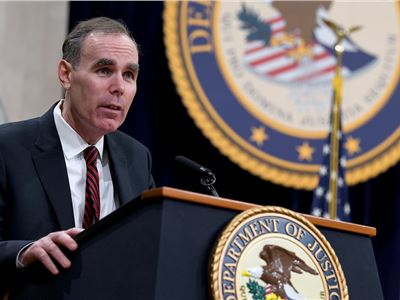The primary role of glucagon, which is secreted by the pancreas, is to signal the body to release stored glucose when blood sugar falls too low.
But growing evidence suggests the hormone may also play a role in controlling food intake and feelings of fullness, or satiation, through signalling the body to reduce levels of other appetite hormones such as ghrelin.
The study's lead author, Dr Ayman Arafat of Chariti-University Medicine in Germany, said: "Once a person becomes obese, glucagon no longer induces feelings of fullness. Further research is needed to determine why glucagon no longer suppresses appetite effectively in this population, even though they are otherwise healthy".
The study, published in the Journal of Clinical Endocrinology and Metabolism, investigated glucagon levels and appetite among 11 obese people, 13 of whom had type 1 diabetes and 13 lean people who received injections of either glucagon or a placebo. The researchers then measured their appetites using a satiety scale as well as levels of the appetite hormone ghrelin.
Feelings of fullness did not differ between obese study participants who received glucagon injections and those who were given the placebo.
In comparison, participants who were lean or had type 1 diabetes reported feeling significantly more full after receiving glucagon.
The response to the hormone was detectable in this population, even 24 hours after it was administered.
Dr Arafat said: "The findings could influence efforts to develop new treatments for obesity and diabetes. Although therapeutic agents that influence glucagon and other hormones currently are considered a promising avenue for research, this study suggests a treatment involving glucagon may be ineffective in controlling meal size in people who are obese".
WHAT IS GLUCAGON?
Glucagon is a hormone that is produced by cells in a part of the pancreas known as the islets of Langerhans.
The hormone plays an active role in allowing the body to regulate the utilisation of glucose and fats.
Glucagon is released in response to low blood glucose levels and when the body needs additional glucose, such as after vigorous exercise.
When glucagon is released it stimulates the liver to break down glycogen to be released into the blood as glucose, activates gluconeogenesis, (the conversion of amino acids into glucose) and breaks down stored fat into fatty acids for use as fuel by cells.
Glucagon serves to keep blood glucose levels high enough for the body to function well. When blood glucose levels are low, glucagon is released and signals the liver to release glucose into the blood.
The hormone is secreted in response to meals varies and the amount varies depending on the food eaten.
In response to a carbohydrate-heavy meal, glucagon levels in the blood fall to stop blood glucose levels soaring.
However, is a person eats a meal rich in protein, glucagon levels in the blood increase.
In people with diabetes, the presence of glucagon can push blood glucose levels too high because wither not enough insulin is present or in the case of type 2 diabetes, the body is not very good at responding to insulin.
- Tags: Obese people misfiring hormone glucagon hormone regulating_appetite type_1_diabetes pancreas glucose appetite_hormone_ghrelin Dr_Ayman Arafat Chariti-University_Medicine Germany Journal_of_Clinical_Endocrinology_and_Metabolism placebo islets_of_Langerhans gluconeogenesis carbohydrate-heavy_meal type_2_diabetes insulin
- Categories: Business Culture Education Good News Healthy Living Life & Style Politics Science Tech Travel Women








































